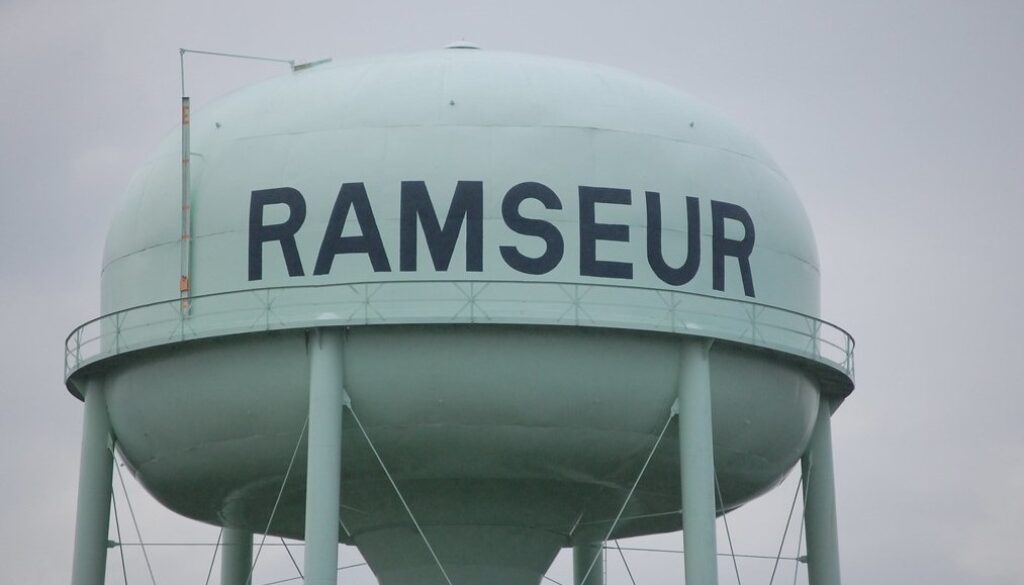Ramseur water treatment funding approved
The Randolph County board of commissioners approved additional funding for the Ramseur water and sewer improvements capital projects at its April 1 meeting, funded through directed grants from the state.
The funding will be used to replace the sludge removal system and improve the disinfection system by adding an ammonia-feed system for the creation of chloramines at the town’s water treatment plant.
The board also approved the establishment of a new soil and water environmental education coordinator position, as well as the reclassification of the existing soil and water environmental education and support coordinator to environmental education and office administrator.
“God didn’t create any of this erosion we have, man created all of it,” said Soil and Water chairman Craig Frazier. “We did the damage to the properties which created this erosion. Now I’ll take all the blame for it in Randolph.”
The funding for the new environmental education position will be supplied through an annual grant from the North Carolina Association of Soil and Water.
“Education has never been a strong suit of mine. It’s not what I’ve been focused on,” Frazier said. “If I had been focused on education 30 years ago like I am today, maybe we could have prevented a lot of what has happened that we’ve had to fix. We have to educate our children, we have to educate our citizens, adults alike, on how to protect our environment. On how to prevent erosion of our soil and the destruction of our water.”
A $5 million capital project ordinance was approved, for improvements at Randolph Community College including the Continuing Education and Industrial Center, the Photography Center, the Cosmetology Center, the Allied Health Center, and for the acquisition of land for the Liberty Training Center.
The second was the approval of phase one of the Randolph County Schools growth plan.
“The first two items are our top two priorities,” said RCSS superintendent Stephen Gainey. “Replacing Liberty Elementary with a new school in the area hopefully somewhere between 421 and where Liberty Elementary stands right now. The other school to replace is Randleman High School.”
The other items on the plan include renovating Eastern Randolph, Trinity and Southwestern Randolph High Schools, the removal of Braxton Craven Middle School, as well as the old Randelman High and Liberty Elementary buildings once the new ones are constructed, and the acquisition of a consulting group to address current and future facility and student assignment needs.
In other business, a hearing was held to consider changes to the Randolph County UDO based on legislation passed by the North Carolina General Assembly.
The updates to the UDO, which is over 400 pages long, range from minor changes in definitions and grammar to the removal or addition of singular sentences, as well as completely updated standards for specific ordinances such as watershed protection and flood damage prevention.
“Most of this is state mandated so I think we can if we want to look at something in more detail, but I don’t think there’s anything worth looking at tonight,” said Vice Chair David Allen. “A lot of the information I read was just changing mobile homes to manufactured housing and definitions. I think we need to just go ahead and do it to remain compliant with state law.”
The board also updated the fee schedule for the municipal fire inspections provided by the fire marshal’s office.
“Since 2015, Randolph County Fire Marshal’s Office has provided fire inspection services for the towns of Franklinville, Ramseur and Staley,” fire marshal Erik Beard said. “In 2016, our office began providing these services for the town of Seagrove as well. The amount to charge for these services was determined by taking into account the number of occupancies requiring inspections and the approximate cost of each inspection. At that time, the approximate cost of providing these services was determined to be around $75 per occupancy. Due to the continued increase in costs associated with providing these services, I am requesting an increase of $15 per occupancy to bring the total cost to $90.”
The Randolph County Board of Commissioners will next meet May 6.
 Twitter
Twitter Facebook
Facebook Instagram
Instagram



Ramseur water treatment funding approved – Dailywise
April 10, 2024 @ 6:03 am
[…] Story continues […]
Ramseur water treatment funding approved | Dailywise
April 10, 2024 @ 6:40 am
[…] Story continues […]